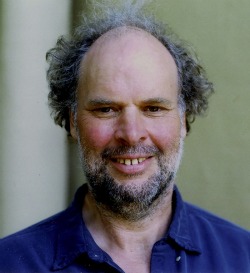
One of the world’s foremost mathematicians, Vaughan F. R. Jones, has accepted a position as distinguished professor of mathematics at Vanderbilt University beginning in the fall of 2011.
Jones, who is coming from the University of California, Berkeley, holds the Fields Medal, which is awarded once every four years to mathematicians not more than 40 years old for outstanding discoveries in mathematics and is generally considered to be the Nobel Prize of mathematics.
“We are thrilled that Vaughan will be joining the mathematics department,” said Chair Dietmar Bisch, who has collaborated with Jones for more than 15 years. “His presence will enhance our research profile enormously and give our students and postdocs a chance to learn from one of our preeminent mathematicians.”
His presence will enhance our research profile enormously and give our students and postdocs a chance to learn from one of our preeminent mathematicians.
From knot theory to particle physics
Jones received the Fields Medal in 1990 for his discovery of an unexpected link between the mathematical study of knots – a field that dates back to the 19th century – and statistical mechanics, a form of mathematics used to study complex systems with large numbers of components.
Not only did his discovery, known as the Jones polynomial, come as a complete surprise when it was announced, but also its importance has increased over time as mathematicians have discovered that it has connections with a number of widely separated areas of mathematics and physics, Columbia University mathematician Joan S. Birman wrote in an article about Jones’ work published in the Proceedings of the International Congress of Mathematics.
In addition to its impact on physics, his work is also being used by molecular biologists studying DNA. It turns out that the mechanisms used by cells to untangle the double-helix strands of DNA during replication and recombination are strikingly similar to the mathematical moves used to generate Jones polynomials.
Awards and honors
Jones has received a number of honors for his work in addition to the Fields Medal. A native of New Zealand, he has been elected a Fellow of the Royal Society and a member of the National Academy of Sciences, the American Academy of Arts and Science and the Norwegian Royal Society of Letters and Science. He has received the Onsager Medal and is a Knight Companion of the New Zealand Order of Merit.
Next fall, Jones will join the math department’s Center for Noncommutative Geometry and Operator Algebras, directed by Bisch. The group includes about 20 faculty members, students and postdoctoral researchers.